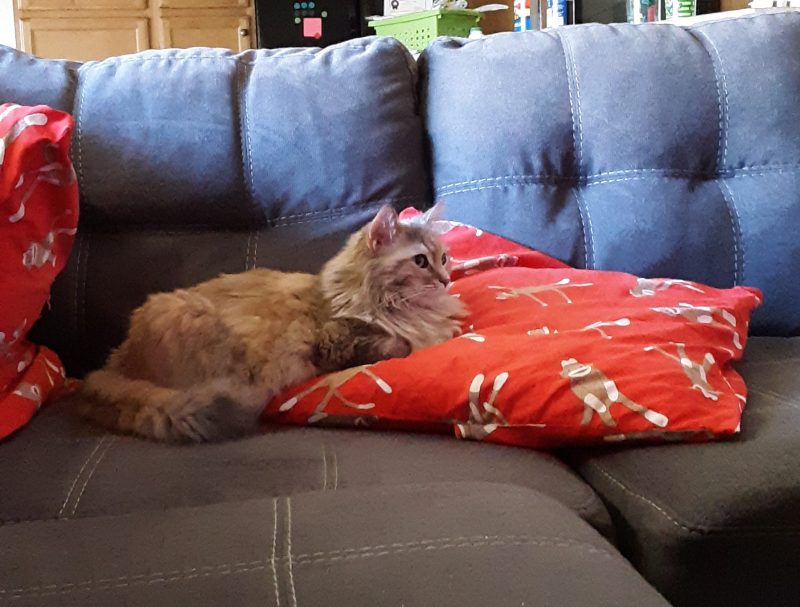I’m always pleased when August is finally at an end. I know September is still summer for the most part, but it’s the emotional start of fall (although for some I suppose pumpkin spice latte season is the true harbinger of fall). I hate being hot and I love being cozy and making foods so summer is not my favorite, especially here in adulthood when “summer” and “vacation” no longer have anything to do with each other. Alas.
Consuming
Here are some things I read, listened to, or bought this week.
Reading
I’m in the middle of a few books right now, so I’m going to take another week of sharing articles I read.
- The Misogyny of Climate Deniers from The New Republic. Another article about the weirdness of caring about the environment being coded “feminine” (p.s. please abolish gender roles), but it adds an analysis of the misogyny that women standing up for environmental causes experience.
- The Case for Climate Rage from Popula. I love this essay. This is such a good, strong entry into the corpus of feelings on climate change. You should definitely read this.
- Amazon’s Ring is a Perfect Storm of Privacy Threats from the EFF. A discussion of these Ring doorbell cameras and how Amazon collaborates with police departments (including Elk Grove’s, it seems) to provide data collected from Ring.
- After Abortion Ban Attempt in Alabama, a Flood of Confusion and Phone Calls from PBS Frontline. In short, no one knows what’s happening with women’s health care in Alabama right now. The law banning abortions isn’t even in effect but it’s already impacting women because so many people are confused.
- Unfulfilled at the Amazon Tour from The Outline. Vicariously experience the existential horror of an Amazon shipping facility.
Listening
I know I’ve mentioned it before, but I love the Gaslit Nation podcast. It’s the clearest discussion of current events at the moment. This summer, they have hosted a bunch of interviews with journalists and other experts and it’s been fascinating. It’s also really filled my “to be read” list. Last night, I checked out House of Trump, House of Putin from the library after hearing the Craig Unger interview.
Rampant Consumerism
We had a roller derby game in Rohnert Park last weekend, so Kirk and I decided to have a look around Sebastapol beforehand because if we’re going to drive somewhere, we might as well do something other than see the inside of a roller rink. We bought lunch at a cute tea house that unfortunately made Kirk sick to his stomach. We did not realize that the entire menu was vegan (and the menu was not very clear on this subject). So, while I had some cute food, it was not worth it. In fact the whole day was full of difficult food. I was starving after eating miniature tea foods. I later bought a burrito at some bougie Mexican place and it was the worst burrito I’ve ever had in my life. I don’t know what was in it, but it was so acidic that it was inedible.
The good thing about this misadventure was I did get to by some books at a local bookshop, Copperfield’s Books.

bookstore finds 
Cute but regrettably vegan food
Making Things and Doing Stuff
The week was full of roller derby, knitting, and making food, as well as a smattering of work and language studying. Perhaps as an anti-doing stuff entry, Kirk and I decided to stop going to Body Tribe for our workouts. We realized we’re tired of driving all the way downtown three times a week to go to a gym, although it’s quite a good gym. We’re thinking about setting up a garage gym, but it won’t happen for a couple of months. So this week I’m going to be figuring out how to get my sweet gainz in the meantime. If anyone has a lead on cheap gym equipment, please pass it along.
Derby Life

As mentioned above, we had a game last weekend. Our B team played Resurrection Roller Derby. The other team was a little rowdy and didn’t totally understand the rules, which probably worked to their advantage since we only had four referees (out of the typical six). I always find it hard to play my best game in these kind of circumstances. It’s difficult not to play worse in response to sloppy play, but I think we did alright. That said, the opposing team did vote me as “best blocker” for the night. I’m pretty sure I only got it because they remembered being hit by me. I’m not convinced I was actually the best blocker. The more I get these awards, the less I think I deserve them. That’s anxiety for you.
Knitting
I finished knitting my socks! They are delightful and cozy. I can’t wait for the weather to cool down so I can wear them. I’m already on to my next project, but I think it’s going to be a little bit tricky and will take a whole before I have any photos worth showing.

newly knit and blocked socks 
fresh socks
Kitchen Witchery
I tried some new things and revisited things I already know I are good. I made granola in the crockpot with a recipe from Adventures in Slow Cooking. It’s actually quite good and pretty simple to make. I will probably make it again, but perhaps with some variations on the spices. I am not sure the cardamom the recipe called for tastes great with the yogurt I typically eat.
My derby wife Taco gave me some zucchini from her garden so obviously I had to put it to good use. I made shells with bacon, zucchini, and onions for dinner and it was a success. Simple and not too heat-generating for a warm evening. Yesterday I made (and ate a large amount of) zucchini bread using the recipe from The Bread Bible. I had a huge amount of zucchini so I doubled the recipe and stashed some of the bread in the freezer for later.

cooling my granola 
granola + yogurt = breakfast 
pasta with zucchini, bacon, and onion 
zucchini bread season
Here’s a cat picture for your nerves. It’s Viola again this week because Huey has spent the morning vomiting and I must say it’s not cute.







































































